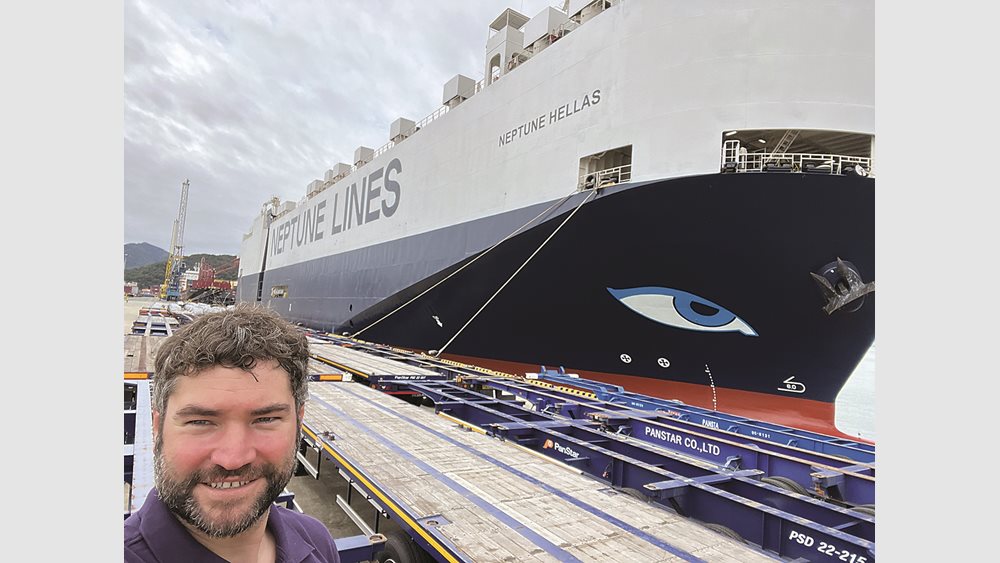Παρασκευή, 11-Ιουλ-2025 17:13
EPLO turbocharger upgrades are helping older vessels join the decarbonization journey


With a reported reduction of only 14.2%,1 as of December 2024 –only 0.2% more than in 2022– and the European Union adding impetus through carbon pricing and penalties in its Emissions Trading System (ETS)2 and FuelEU Maritime3 regulations, shipping companies are looking for every means of speeding up decarbonization efforts. Accelleron’s EPLO turbocharger upgrades are giving shipping operators a fast and affordable way of cutting emissions in existing fleets, putting a spate of older vessels on the path to decarbonization.
While future carbon-neutral fuels will be critical to reaching net zero, a report commissioned by the IMO shows that technologies already exist to reach the IMO’s first major emissions checkpoint in 2030. The report asserts that a reduction in global shipping emissions of 28-47% by 2030 is technically feasible, with fully half accomplished through lower sailing speeds and other operational measures.4
Matthias Reichmann, Senior Engine Expert and Product Manager for EPLO Upgrades at Accelleron, says, "Our Engine Part Load Optimization (EPLO) program falls into the fast and easy operational category. Within an average port stay of one or two days, we can combine turbocharging component upgrades with engine derating to cut fuel consumption and lower emissions by an average of 3%, in some cases more”.
"Ships built 10 or 15 years ago were designed to run most efficiently at high power. Now, the industry has an urgent mandate to cut emissions by 20-30% by 2030. The fastest way to do it is to reduce the power output. We can safely recalibrate the turbocharger and engine to run most efficiently at a lower % of their maximum continuous rating. That brings substantial fuel savings and emissions cuts”.
This "quick fix” could enable a vast pool of existing ships to join the decarbonization journey now. With an average vessel age of 13.1 years (weighted per gross tonnage)5 in the global fleet, thousands of ships could cut emissions virtually overnight.
"Ship operators are going to break even on their investment within 3 years, at the latest, just through operational savings”, says Reichmann. "More than that, using EPLO, we can help shipping companies avoid the premature retirement of ships, giving them another 10 or more years of operation under increasingly stringent sustainability regulations”.
When implementing EPLO, Accelleron keeps the original turbocharger casing while upgrading internal components from the compressor wheel to turbine shaft and blades. Changes can be conducted during routine servicing schedules without requiring a visit to a dry dock.
Reichmann highlights Solvang’s LPG tanker, Clipper Hebe, where a combined turbocharger and propellor upgrade improved the ship’s Carbon Intensity Indicator (CII) rating and generated 25% fuel savings.
With increasing regulatory pressures, the demand for EPLO and similar upgrades is rising rapidly. Accelleron’s upgrades have grown in popularity year on year, saving customers tens of thousands of tons of CO2.6
Recent successful implementations include the car carriers MV Morning Concert, Neptune Hellas, and Höegh Detroit. The Höegh Detroit demonstrated fuel savings of 10g/kWh, equivalent to 5% of total fuel consumption, leading to EPLO orders for seven more vessels and all 7 additional vessels were installed within only one year confirming the same 5% saving as on the parent engine.
Learn more about EPLO solution, scan the QR code.
1. Clarksons Research. World Fleet Monitor. Vol. 15, No. 11, November 2024, ISSN: 2042-0633. WFM Vol 15 No 11 November 2024.
2. European Commission. European Union Emissions Trading System. Accessed November 2024. European Union Emissions Trading System - European Commission
3. European Commission. Decarbonising Maritime Transport – FuelEU Maritime. Accessed November 2024. Decarbonising maritime transport – FuelEU Maritime - European Commission
4. CE Delft. Shipping GHG Emissions 2030: Analysis of the Maximum Technical Abatement Potential. International Maritime Organization Future Fuels and Technology Project, February 8, 2023. CE Delft 230208 Shipping GHG emissions 2030 Def.pdf
5. Clarksons Research. (2025). Green Technology Tracker: Record investments in alternative fuel. Clarksons. https://www.clarksons.com/home/news-and-insights/2025/green-technology-tracker-record-investments-in-alternative-fuel/
6. 65,848 t CO2 in 2023, three times the amount in 2022. Accelleron. 2023 Sustainability Report. p. 36. Accelleron Annual Report 2023. Accelleron_Annual_Report_2023.pdf

